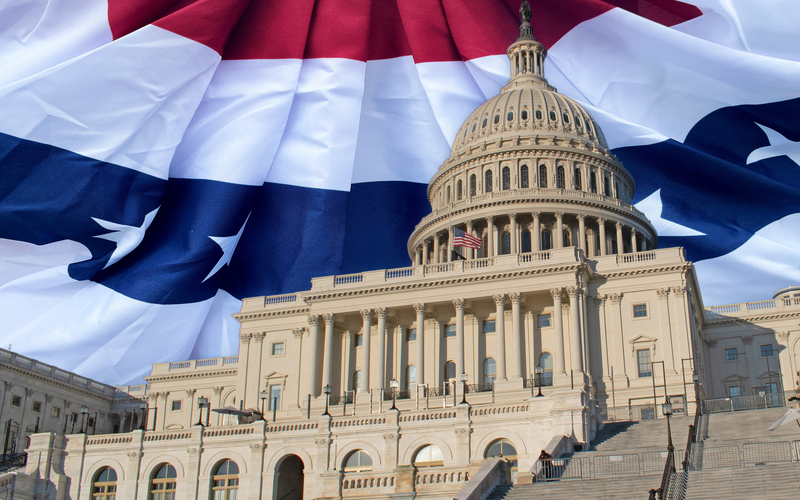Modern Paganism a Growing Threat to American Youth (Part 1)
Sign up for a six month free
trial of The Stand Magazine!
(The following is Part 1 of a two-part series, a very condensed version of Linda Harvey's book, Not My Child: Contemporary Paganism and the New Spirituality.)
It seemed harmless to my friend and me – a wooden board painted with the alphabet and numbers. It had been around for decades and I had never met anyone, my parents included, who believed there was a problem.
In the 1890s, a man named William Fuld introduced a novelty called the Ouija board into the recreational world of America. It was picked up for mass production by Parker Brothers in the 1960’s, and soon several million units were in the hands of American kids. Like me at age fourteen.
Anne and I giggled as we read the directions. “What makes this thing move?” I asked. We decided it must be our nerve endings, but each of us secretly believed the other one was pushing the little pointer used to highlight the numbers and letters. But as we asked it questions, each resting our fingertips lightly on one side, the little plastic device raced along, spelling out an answer. Often the response was gibberish, but sometimes it wasn’t. It told me, in answer to the question on every girl’s mind, that I was going to marry a guy named Phil.
I never married a Phil, and Anne and I soon put the board away and went on to other teen girl interests. Yet this episode remained at the hazy edge of memory, unexplained, until I became a Christian as an adult.
Traditional faith provides clear instruction about this sort of thing, but my teenaged mind had danced past it. It wasn’t as if I had no exposure to the Gospel message. Between the 11:00 a.m. services, Sunday school, vacation Bible school and confirmation classes, I spent a lot of time at our Episcopal church. But never to my recollection were we warned about certain practices like divination (fortune-telling) that are called “abominations” in Deuteronomy 18. In fact, a serious adherence to Scripture would have been way too fundamentalist and anti-intellectual in the Anglican faith climate.
So there was no reason to hesitate when, in my later teens and in college, I became fascinated by what is called “parapsychology.” I read about experiments at Duke University and other institutions, and all about Edgar Cayce, past lives and reincarnation.
As a young adult, I faithfully followed my horoscope and even bought Tarot cards, although they were soon collecting dust in the back of a drawer. By God’s grace, I never became immersed in occult practices, ultimately finding the star charts and card-reading too silly, overly complicated and weird to bring real meaning into a busy secular life. So I, like most of my generation, slithered out of sorcery’s grasp.
The decades of my adolescence were transitional ones, where an America in flux nevertheless retained a national ethic steeped in Protestant, biblical mores, and those of us raised in the 50’s, 60’s and 70’s still benefit from immunities obtained then. Marriage, respect for God, virginity, honesty—all were the cultural norm as even those with flimsy faith got a free ride on the coattails of the Holy Spirit. Sure, a few of my counterculture peers dove into the Age of Aquarius head first, with all its meditation, trances, and channeling. Still, the gross number of converts remained relatively small.
With our kids, that is rapidly changing.
Today’s American child is a product of casual “spirituality,” “separation of church and state,” no prayer in school, abortion, and “LGBTQ” rights. In their world, it’s going out on a limb just to say “God bless America.” So is it any wonder that so many are falling under the spell of the “ancient ways”?
Resistance will only be as strong as each child’s nonsense detector. Our self-indulged offspring are learning that they can and should construct designer gods to be what they need. They presume the supernatural is benevolent, ready to affirm one’s self-esteem, and they exclude the notion of spiritual evil as absurd and primitive.
Their amorphous deities can be manipulated at will to become one’s untapped mental abilities, a creative muse, an Amazon goddess, or a lover of Dionysian pleasures. Frequently these new gods are dressed in Christian garb with an altered “Jesus” who is no longer a savior, but can morph into a sentimental sap or a receiver of self-focused prayer as needed—or conveniently vanish in the light of the world’s temptations, freeing one to partake as guiltlessly as necessary. These squishy spiritual beliefs allow the self to be the real boss.
But no firm foundation can be laid with Jello and many wonder if this is a spirituality that has “a form of godliness but denying its power.”( 2 Timothy 3:5) Without the omnipotent power of the Holy Spirit, who is one with our Savior, Jesus Christ, malevolent spiritual forces are free to step in. So the faith that for several thousand years of history dared not speak its name in the Western world, does so boldly now.
Essentially, it’s paganism.
Get rid of your fears, youth are told everywhere. Fear is taboo, unnecessary, and irrelevant because you can always find power to slay your own vampires, or satisfy even the most remote desire. This power is within each of us, kids are taught, just waiting to be harnessed. That’s the only discipline anyone needs. But what would unbridled spiritual power be like in the hands of adolescents? What about curses or hexes? Such practices violate the ethics of “real” witches, according to many in the craft. And adults are evidently supposed to trust kids to stick to the “good” stuff.
Often it’s positioned as “white magic” as opposed to “black magic.” In Charlotte, NC in 1999, three middle school girls were suspected of casting death spells on their classmates, so school officials confiscated their books on witchcraft. The officials made the decision after several students approached school counselors, some upset and crying. The whole situation was creating too much disruption, the administrators said. But the mother of one of the girls, a seventh grader, said her daughter only practiced “good witchcraft.”
What‘s behind the rash of behavioral problems American children now experience? Childhood depression, hyperactivity, panic attacks, eating disorders, suicide, substance abuse, gender identity disorders, violent child criminals, early sexual experimentation, teen pregnancies, abortions, rage against authority—the list goes on. America’s youth are the most privileged, comfortable, and healthy generation in the history of humanity. Why in the world would something dark and pointless like sorcery appeal to them?
Because we have opened the gates of hell for them to peek into, believing it’s the Garden of Eden, our children are learning to welcome and embrace the darkness. Why do we not realize this will have drastic implications for their spiritual lives?
God has given us so much, and yet we thumb our nose at Him, bowing down instead to the goddess of American pop culture. One vision of judgment is fire and brimstone. Yet in reality, our end may come as we gently, peacefully get what we wish for. Our over-indulged offspring are spiritually starving. Can’t we offer them something besides the empty plate of sorcery?
(Editor's Note: Click HERE to continue reading this article on the Mission America website.)

Sign up for a free six-month trial of
The Stand Magazine!
Sign up for free to receive notable blogs delivered to your email weekly.



















